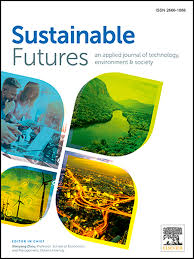Partnerships for sustainable food and bioeconomy systems in Europe:exploring the role of intermediaries
 This publication dives into the complex world of sustainable partnerships in Europe, specifically focusing on food and bioeconomy systems. While these partnerships share a common goal of sustainability, partners often bring diverse visions—from broad concepts like the blue economy to highly specific, grounded objectives. Managing these differing perspectives is a significant challenge.
This publication dives into the complex world of sustainable partnerships in Europe, specifically focusing on food and bioeconomy systems. While these partnerships share a common goal of sustainability, partners often bring diverse visions—from broad concepts like the blue economy to highly specific, grounded objectives. Managing these differing perspectives is a significant challenge.
What the article explores
The study offers a novel perspective by exploring the crucial role of intermediaries operating within these partnerships. It defines intermediaries as the key players who facilitate interactions between partners and manage their connections with the outside world.
- Key Question: How do these intermediaries influence the success of sustainable value co-creation?
Findings
Based on in-depth case studies of partnerships across regional, national, and cross-country scales (Pôle Mer Mediterranée, Foodwest, and BIOEAST), the publication identifies and classifies the positioning and roles of these intermediaries.
Two distinct types identified:
- Part-time Facilitators: A loosely bound group focused on enabling connections.
- Full-time Management Teams: A coherently intervening team dedicated to the partnership’s management.
The study demonstrates that both categories significantly shape the co-creation process by utilizing a unique mix of essential tools: animation, internal communication, external promotion, and coordination. The effectiveness of their approach is strongly influenced by the formality of communication and the specific geographic and thematic context of the partnership.
This research clarifies the often-overlooked function of intermediaries, providing valuable insights for policymakers, partnership managers, and stakeholders aiming to foster more effective and sustainable collaborations.